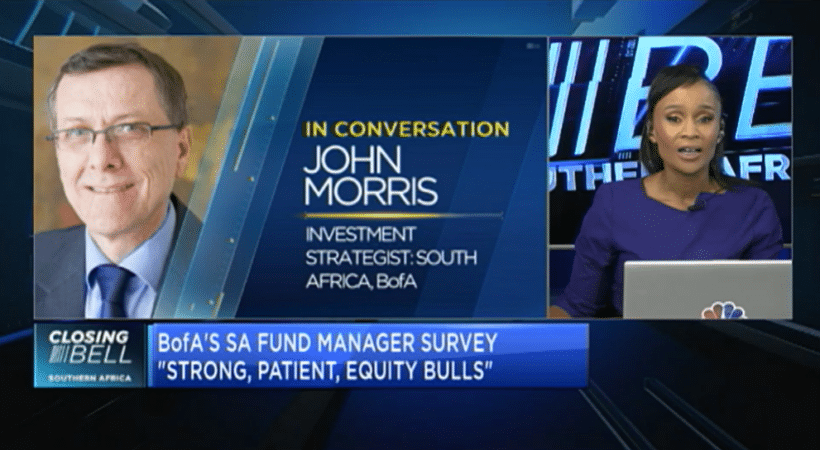
South African fund managers expect the benchmark all share index to advance more than 10 percent to a record in the next year, outperforming cash as the economy recovers from record power shortages and lower interest rates amid lower inflation.
The JSE All Share Index is forecast to reach 81,000 points in 12 months, according to the Merrill Lynch survey titled Strong, patient, equity bulls. The survey found a net 80 percent of managers are overweight domestic stocks with banks and software companies as favourites. No one wants to increase their cash portions.
`”One of the most interesting things that have come out of the survey this time around is just how many more local investors have turned into equity bulls and how many more have also turned into cash bears,” John Morris, Merrill Lynch South Africa Strategist told CNBC Africa. “So that’s a sign of risk appetite. It’s a sign of confidence on other assets like your equities.”
South Africa’s economy almost tipped into a technical recession in 2023 amid the country’s worst power cuts in history, rising inflation and the highest interest rates in 15 years. Growth is expected to almost double this year after the government opened power generation to private investors and households.
The country’s central bank is expected to begin cutting interest rates from the second half of the year, reducing pressure on consumers, though fund managers in the survey picked weak earnings as one of the risks to keep an eye on in the next 12 months, alongside potential policy shifts to the left after May elections that may see the ruling African National Congress party lose its majority for the first time since 1994.
“While the rate cuts may be more shallow compared to historical trends, they still present opportunities for investors in the equity market,” Morris said.
Over the year, fund managers see equities’ total returns at 15 percent, with bonds expected to return 20 percent.
The survey revealed that around 87% of fund managers anticipate the first rate cut by the South African Reserve Bank to be implemented in the third quarter of the year, with a gradual cutting cycle expected.